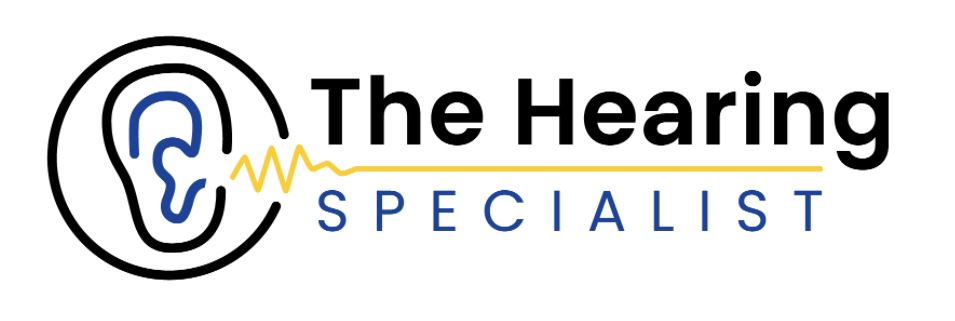Communicating with people who suffer from hearing loss can be a challenging task. The condition affects sufferers in different ways, so there is no one-size-fits-all strategy but there are some generic tips that can help along the way.
So, in today’s article, we are going to dive into a range of tips that can help you communicate with people with hearing loss. We have a range of key points we’ll be talking about, so carry on reading below to learn more.
General tips
Effective communication with people who have hearing loss involves a thoughtful and considerate approach. Whether you’re interacting with friends, family, coworkers, or anyone else, these general tips will help you communicate more effectively and ensure that everyone feels included and understood:
Face the person directly
Position yourself so that your face is clearly visible to the individual. This will enable them to read your lips, facial expressions, and other non-verbal cues that contribute to understanding.
Speak clearly and naturally
Speak clearly and at a moderate pace. Avoid shouting or over-enunciating, as it can distort your speech and make lip-reading more challenging. So, maintain a natural tone and rhythm.
Rephrase instead of repeating
If the person doesn’t understand what you said, try rephrasing instead of repeating the same words. Using different words might help convey the meaning more clearly.
Be attentive and responsive
Be attentive to the person’s cues and body language. If they seem confused or disengaged, be ready to adjust your communication style or address any concerns they might have.
Respect personal preferences
Everyone’s experience with hearing loss is unique. It’s important to respect the individual’s preferred communication methods and accommodate any requests.

Communicating with friends & family
Having friends and family members with hearing loss can present unique challenges in maintaining clear and meaningful communication. However, by adopting specific strategies and practices, you can enhance your interactions and ensure that everyone feels included and understood.
Firstly, maintaining eye contact plays a crucial role in communication for individuals with hearing loss. When speaking, make an effort to maintain good eye contact to help them follow the conversation and pick up on non-verbal cues. This can enhance their understanding of the context and emotions behind the words being spoken.
In addition, finding the right environment is a good solution for communicating with a friend or family member with hearing loss. Background noise can be a significant barrier for people with hearing loss. Whenever possible, choose quiet environments for conversations. If you’re in a noisy setting, try to reduce background noise by turning off the TV or moving to a quieter area. A great benefit that coincides with this tip is using gestures and body language to communicate with them. Simple hand gestures, pointing, and facial expressions can help convey the meaning of your words and provide additional context. You don’t have to be dramatic when projecting this, as long as the person can understand what you’re saying to them.
Finally, another tip for communicating with your friends and family is to be patient and attentive. Effective communication takes time and patience. If your friend or family member asks you to repeat something or seems to be struggling to follow the conversation, be patient and understanding. Offer reassurance and let them know you’re willing to accommodate their needs. They will appreciate this enormously, and it will benefit you long term too.

With coworkers
As well as friends and family, It’s equally important to communicate effectively with your coworkers who may suffer from hearing loss. As long as you follow our tips you can establish clear lines of communication with colleagues and help to make their working life more enjoyable.
Firstly, a simple yet effective way of communicating is by initiating a conversation with them. Taking a proactive step by starting a conversation with your coworker about their hearing needs will help you tailor your interactions accordingly. They will greatly appreciate this as they might feel socially isolated due to their hearing loss.
Furthermore, choosing a suitable communication channel for your coworker can help accommodate their hearing loss. By establishing communication channels that they are comfortable with, you can better serve their individual hearing needs.. For example, they might prefer to communicate via written form, sending emails or instant messages.
Also, another good tip is something as simple as encouraging open communication. Creating an environment where your coworker feels comfortable expressing their needs and preferences can be a major confidence boost. It will encourage them to speak up about any issues they’re struggling with, and help fix the problem quicker. Once you’ve established this communication with your coworker, you can educate your other colleagues on the matter. This will help create a more informed and supportive work environment, and push for more people to speak up if they’re struggling from hearing loss. Teamwork makes the dream work!

Get in touch with The Hearing Specialist
We understand the challenges you can face when communicating with people with hearing loss. It can put a strain on personal or professional relationships, which is why we’re here to help.
At The Hearing Specialist, we don’t just offer excellent hearing services to improve your ear health; but we offer excellent aftercare too. We can offer you unlimited, immediate aftercare so you can be sure that you’re in safe hands whenever you need it. We’re here to answer any questions or concerns about your hearing or device – we take great pride in looking after all of our customers. Feel free to check out our customer reviews – we guarantee you won’t be disappointed!
We hope you enjoyed reading our latest article about communicating with people with hearing loss. If you have questions about any of the tips we’ve given, feel free to get in touch. Alternatively, if you’re struggling with your hearing and you’re looking to get your ears checked – book an appointment today and we will diagnose the problems you’re experiencing.




